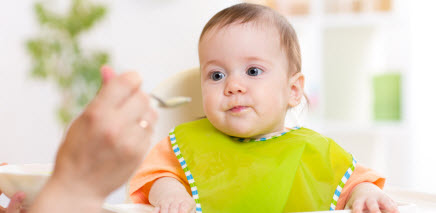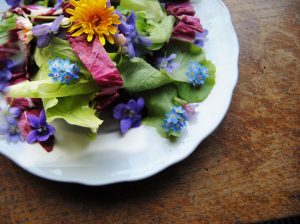Good News for Babies Starting Solids

When it’s time for your baby to start solids, it can be tough to know which foods to introduce first. Everyone from your mother to your neighbour, best friend to Paediatrician may advise you differently. And that’s before you even open one of the dozens of infant feeding books you have stacked by your bedside table.
So much has changed since you were a baby just starting solid foods. Chances are your parents were given strict instructions to start with a rice-based cereal as your first food. Sources of protein were introduced much later on after you’d already gotten used to a variety of fruits and vegetables. The decades since have seen the recommendations shift so that foods other than cereal could play the starring role in those first-food photo ops. But parents were still advised to delay introducing egg whites until 12 months, in order to avoid egg allergies.
Recent infant feeding guidelines developed by Health Canada, The Canadian Paediatric Society, Dietitians of Canada and the Breastfeeding Committee for Canada have changed the advice around eggs. It’s now recommended that parents introduce whole eggs—that’s the yolk and the white together—starting at six months. Not only is this now known to be perfectly safe for your baby, it’s thought to help prevent the development of egg allergies and help deliver important nutrition to your child.
This is good news on so many levels. Eggs are a pure, unprocessed food choice for your little one, free of added steroids and hormones. With six grams of the highest-quality protein and fourteen essential vitamins and nutrients, eggs are a practical way to add an iron-rich, wholesome food to your baby’s diet. They are a natural source of choline, which plays an important role in brain development. They’re super versatile and inexpensive, too, especially when you consider the caloric and nutrition value of each little egg.
On the food preparation side, the new guidelines make it easier to prepare a good meal for your baby. Cooking an egg yolk on its own could be tricky business, but whole eggs are simple to prepare. Plus eggs are easy for little ones to gum or chew and have a mild taste that’s pleasing to babies.
It just got a whole lot easier to make the most of those precious bits of food that wind up in your baby and not on the floor or in their hair!
For more information on the new recommendations and ideas for how to serve your baby eggs, visit the Egg Farmers of Canada website.














